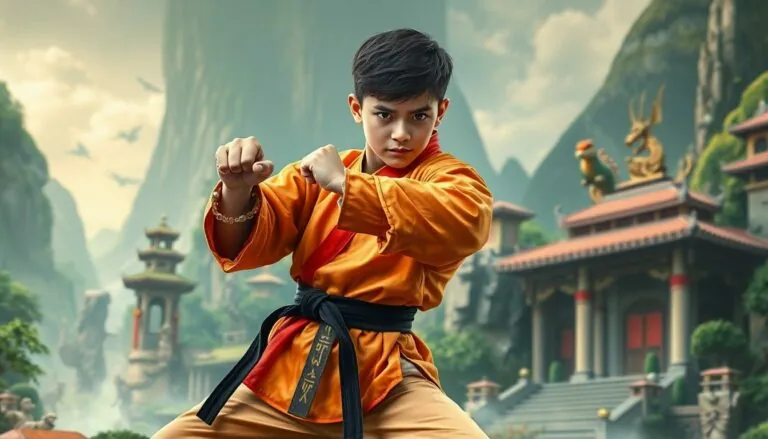In the vast universe of gaming, two acronyms often spark heated debates: MMO and MMORPG. While they might sound like the latest tech gadgets, they actually represent two distinct types of online gaming experiences. Picture this: you’re diving into a world teeming with players, quests, and loot galore. But wait! Are you in a massive multiplayer online game, or are you navigating the sprawling realms of a massively multiplayer online role-playing game?
Table of Contents
ToggleOverview of MMO and MMORPG
MMO and MMORPG represent two significant genres in online gaming, each offering unique experiences. Understanding their definitions helps clarify how they differ.
Definition of MMO
MMO stands for Massively Multiplayer Online game. In this genre, thousands of players interact in a shared virtual space. Games typically involve cooperative play, competition, or both. Features often include expansive worlds, social interactions, and various gameplay styles. Players engage in activities such as exploring, competing in challenges, or running businesses. Examples include games like “World of Tanks” and “Destiny 2,” where the focus shifts towards multiplayer gaming without explicit role-playing elements.
Definition of MMORPG
MMORPG, or Massively Multiplayer Online Role-Playing Game, includes elements of both MMO gameplay and role-playing. Players assume the identities of characters in immersive worlds, often completing quests and engaging in character development. Character customization, skill progression, and narrative-driven gameplay differ significantly from typical MMOs. Popular titles like “World of Warcraft” and “Final Fantasy XIV” exemplify this genre through rich storytelling and deep lore, inviting players into expansive adventures.
Key Differences Between MMO and MMORPG
MMOs and MMORPGs differ significantly in their gameplay mechanics and world design. Understanding these differences helps players choose the right type of game for their preferences.
Gameplay Mechanics
MMOs typically emphasize competitive elements and cooperative play. Many players focus on fast-paced multiplayer interactions, such as team battles or guild activities. This format encourages quick matches and strategic gameplay. In contrast, MMORPGs highlight character development and narrative. Players immerse themselves in the roles of their characters, allowing for skill progression and customization. Quests play a significant role in MMORPGs, guiding players through expansive storylines and enriching the overall experience.
World Design
MMOs often feature dynamic environments designed for short gameplay sessions. Spaces can change rapidly, accommodating extensive player interactions. Communities thrive in these environments as players engage in various activities and events. MMORPGs, however, prioritize rich, expansive worlds. Players explore vast landscapes filled with lore and diverse quests. The design invites exploration and social engagement, fostering deeper connections among players. Complex world-building enhances immersion, making MMORPGs unique in their ability to create memorable adventures.
Similarities Between MMO and MMORPG
Both MMO and MMORPG share common traits that appeal to gamers. These include vast open worlds and opportunities for player interaction, which enhance the overall gaming experience.
Community Engagement
Community engagement plays a significant role in both genres. Players connect with others through in-game chat systems, guilds, and forums. These interactions foster a sense of belonging and collaboration, whether battling in teams or sharing strategies. Events, tournaments, and community challenges strengthen these bonds further, making the gaming environment vibrant and dynamic. Players rely on each other for advice, support, and camaraderie, turning casual gaming sessions into meaningful social experiences.
Progression Systems
Progression systems exist in both MMOs and MMORPGs, enabling players to develop their characters. Leveling up provides a sense of achievement, unlocking new skills, gear, and abilities. Players explore various paths for character customization, allowing for diverse gameplay styles. Equipment upgrades and skill trees further motivate players to invest time and effort. These systems reward dedication, encouraging individuals to enhance their gameplay while traversing rich game worlds. Both genres utilize these progression mechanics to engage users and keep them invested over time.
Popular Examples of MMO and MMORPG
Many gaming enthusiasts explore various titles within the MMO and MMORPG genres. A closer look at notable examples showcases the diversity and appeal of these games.
Notable MMO Titles
Games like World of Tanks and Destiny 2 stand out as popular MMOs. Each offers intense competition and unique gameplay experiences. Players in World of Tanks engage in team-based battles using various armored vehicles. In contrast, Destiny 2 combines shooting mechanics with cooperative missions. Warframe also captures attention with its fast-paced action and customizable characters. These titles attract players seeking quick, engaging sessions.
Notable MMORPG Titles
World of Warcraft remains a cornerstone of the MMORPG genre, boasting vast worlds and rich lore. This iconic game invites players to explore expansive landscapes while engaging in quests and developing characters. Final Fantasy XIV offers additional immersion with its engaging storytelling and robust crafting systems. Another example, Guild Wars 2, encourages exploration through dynamic events that influence gameplay. Each title immerses players in a narrative-driven experience that deepens social connections within the gaming community.
Conclusion
Understanding the distinctions between MMO and MMORPG enhances a player’s gaming experience. While both genres offer vast worlds and opportunities for player interaction, they cater to different preferences. MMOs focus on fast-paced competition and cooperative play, appealing to those seeking quick interactions. In contrast, MMORPGs invite players into immersive narratives and character development, fostering deeper connections and long-term engagement.
Choosing between these genres ultimately depends on individual gaming preferences. Whether one enjoys the thrill of competition or the richness of storytelling, both MMOs and MMORPGs provide unique experiences that enrich the gaming landscape. As the gaming world continues to evolve, these genres will undoubtedly adapt, offering even more exciting adventures for players to explore.





